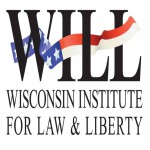Wisconsin’s Emergency Powers Laws in Urgent Need of Reform
New study examines Wisconsin’s emergency powers laws, provides recommendations for reform
The News: A new study from the Wisconsin Institute for Law & Liberty (WILL) makes the case that Wisconsin’s antiquated emergency powers statutes are in urgent need of reform. The report, titled More Than “A Little Danger:” Reforming Wisconsin’s Emergency Powers After COVID-19, provides an in-depth examination of the state of Wisconsin’s emergency powers laws and how they have failed to protect liberty and the separation of powers during the COVID-19 pandemic.
- Join us for a Zoom webinar this Friday at 11 am on Wisconsin’s emergency powers laws.
The Quote: WILL Deputy Counsel, Dan Lennington, said, “Governor Evers has proven that a determined and unaccountable executive can abuse Wisconsin’s emergency powers laws in such a way that the legislative branch is rendered inoperative. As we emerge from the COVID-19 pandemic, reforming Wisconsin’s emergency powers laws ought to be a top priority.”
- CBS 58 interviewed WILL President and General Counsel, Rick Esenberg, for a report on the danger posed by Wisconsin’s antiquated emergency powers laws.
Diving Deeper: For much the last year, Wisconsin’s regular constitutional order has been suspended as a result of consecutive statewide public health emergency orders issued by Governor Tony Evers in response to the COVID-19 pandemic. A new study by WILL Deputy Counsel, Dan Lennington, provides a first-of-its-kind examination of Wisconsin’s emergency powers laws, the dangers to liberty and the rule of law, and recommendations for reform. Some of the key findings from More Than “A Little Danger:” Reforming Wisconsin’s Emergency Powers After COVID-19, include:
- Wisconsin’s antiquated emergency-powers statutes grant the governor and other officials seemingly limitless powers. Relatively unchanged since the 1960s, Wisconsin state laws grant the governor and other officials seemingly limitless emergency powers to issue any orders they deem “necessary” to respond to a disaster or a public-health emergency like COVID-19.
- During COVID-19, Wisconsin officials have wielded this power in extraordinary ways. State officials have issued over 50 emergency orders and kept Wisconsin in a state of emergency for more than 300 days. The scope of many of these orders have been extremely broad.
- Existing law does not adequately protect individual liberties or the separation of powers. This current legal framework permitting rule-by-order amounts to a violation of the basic civil liberties of all Wisconsinites, and a substantial transfer of legislative power to state and local officials, with very little oversight or participation by legislative bodies.
- Wisconsin’s outmoded statutes are behind the curve. Other states provide more legislative-branch participation in the exercise of emergency powers and in some cases require affirmative ratification of emergency orders by the relevant legislative body.
Recommendations for Reform: With Wisconsin’s emergency powers laws proving inadequate to the task of protecting liberty and ensuring a proper role for the legislative branch, WILL is recommending the following reforms:
- Limit emergency declarations from 60 days to 30 days.
- Require orders to be promulgated as rules to ensure proper legislative oversight.
- Impose legislative oversight of local emergency orders.
- Explicitly and categorically define what types of conduct cannot be regulated by emergency orders and provide for judicial review of emergency orders.
- Harmonize and reform enforcement powers.
- Allow local units of government to opt-out of statewide health orders, subject to override by the Wisconsin legislature.
Read More:
- “Wisconsin operating with no limits on Evers’ Emergency Orders; over 50 issued since pandemic began,” CBS 58, February 23, 2021
- More Than “A Little Danger:” Reforming Wisconsin’s Emergency Powers After COVID-19, Dan Lennington, February 2021
- Register now for a WILL Webinar on Emergency Powers Laws
NOTE: This press release was submitted to Urban Milwaukee and was not written by an Urban Milwaukee writer. While it is believed to be reliable, Urban Milwaukee does not guarantee its accuracy or completeness.
More about the Coronavirus Pandemic
- Governors Tony Evers, JB Pritzker, Tim Walz, and Gretchen Whitmer Issue a Joint Statement Concerning Reports that Donald Trump Gave Russian Dictator Putin American COVID-19 Supplies - Gov. Tony Evers - Oct 11th, 2024
- MHD Release: Milwaukee Health Department Launches COVID-19 Wastewater Testing Dashboard - City of Milwaukee Health Department - Jan 23rd, 2024
- Milwaukee County Announces New Policies Related to COVID-19 Pandemic - David Crowley - May 9th, 2023
- DHS Details End of Emergency COVID-19 Response - Wisconsin Department of Health Services - Apr 26th, 2023
- Milwaukee Health Department Announces Upcoming Changes to COVID-19 Services - City of Milwaukee Health Department - Mar 17th, 2023
- Fitzgerald Applauds Passage of COVID-19 Origin Act - U.S. Rep. Scott Fitzgerald - Mar 10th, 2023
- DHS Expands Free COVID-19 Testing Program - Wisconsin Department of Health Services - Feb 10th, 2023
- MKE County: COVID-19 Hospitalizations Rising - Graham Kilmer - Jan 16th, 2023
- Not Enough Getting Bivalent Booster Shots, State Health Officials Warn - Gaby Vinick - Dec 26th, 2022
- Nearly All Wisconsinites Age 6 Months and Older Now Eligible for Updated COVID-19 Vaccine - Wisconsin Department of Health Services - Dec 15th, 2022
Read more about Coronavirus Pandemic here
Mentioned in This Press Release
Recent Press Releases by Wisconsin Institute for Law & Liberty
WILL Wins Preliminary Injunction in Defense of 1st Amendment
Apr 7th, 2023 by Wisconsin Institute for Law & LibertyLawsuit is a part of WILL’s Preserving Democracy Project



















